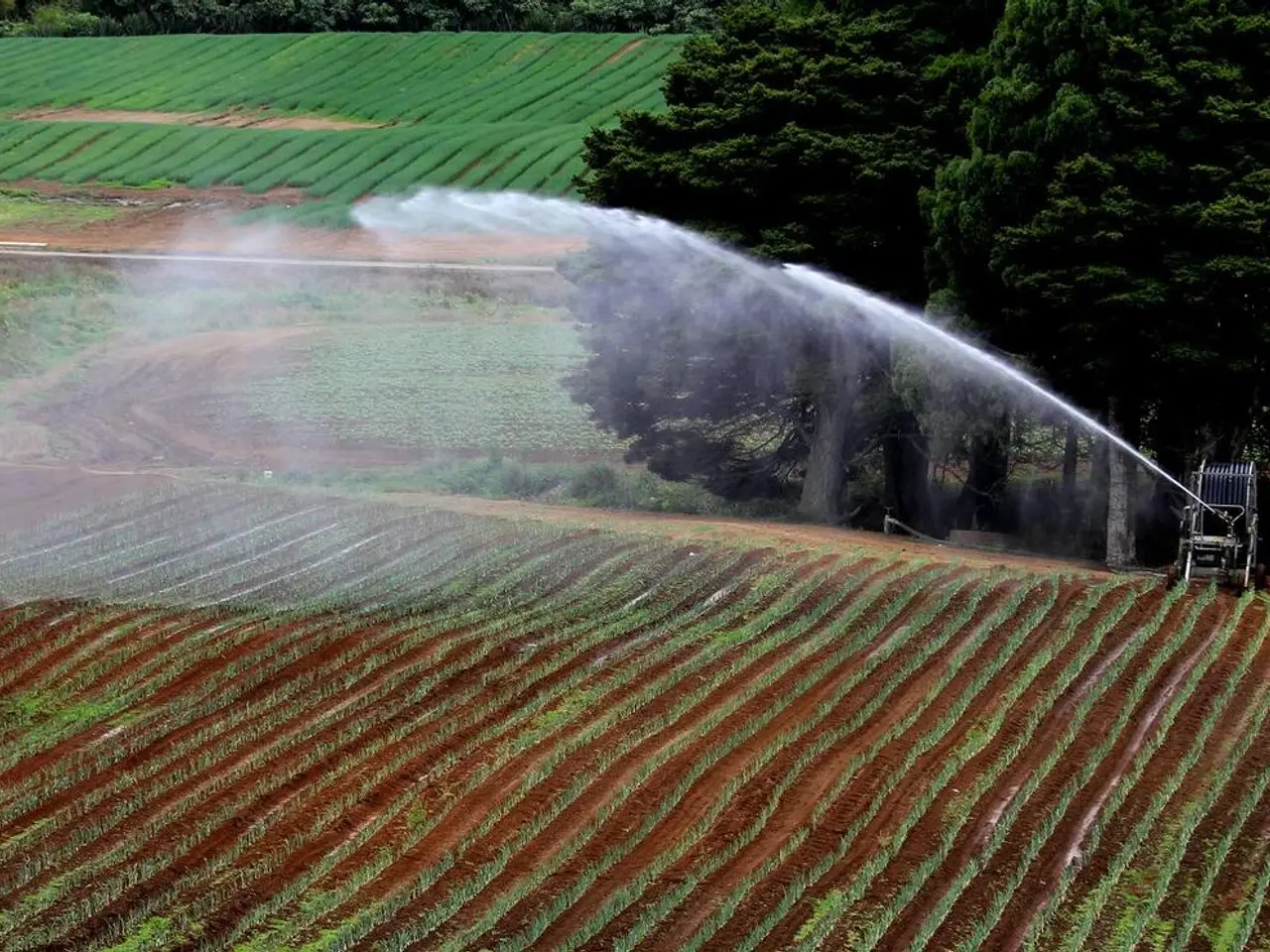Artificial Intelligence: A Key to Fostering Positive Social, Environmental, and Environmental Changes, Study Suggests
========================================================================
In a significant move, Swiss private bank Union Bancaire Privée (UBP) has released an impact report focusing on the dual impact of Artificial Intelligence (AI) on impact investors. The report highlights how AI significantly enhances corporate sustainability efforts by enabling smarter resource management, optimizing energy use, advancing climate modeling, and improving environmental accountability.
One of the most promising areas for AI applications is agriculture and climate solutions. AI-powered robotics harvest crops only when mature, reducing waste. Weather monitoring AI predicts optimal planting and watering times, enhancing resource efficiency. Crop and livestock monitoring use image recognition and sensors to detect diseases or pests early, minimizing chemical use and losses. Land management algorithms optimize farmland use according to satellite data to ensure sustainability and regulatory compliance.
In the realm of climate solutions, AI advances climate change mitigation by enhancing climate modeling and predictions, enabling better strategy development for prevention and adaptation. It aids natural resource management such as detecting deforestation and monitoring biodiversity via satellite imagery, and optimizes water resource management and irrigation schedules in farming to conserve water. AI-driven energy optimization supports renewable integration and reduces reliance on fossil fuels.
Companies like AECOM, Stem Inc., and Verdantix use AI to accelerate net-zero efforts, decarbonize industries, and verify carbon offsets. PwC estimates AI could cut global greenhouse gas emissions by about 4% by 2030, highlighting its growing role in sustainability strategies.
However, it is important to balance these benefits with AI’s own environmental costs. As AI growth increases data center power consumption and associated emissions, leading organizations are adopting renewable energy and carbon-neutral strategies to minimize AI’s ecological footprint.
UBP views AI as an "enabling technology" and is directing capital towards improving the sustainability of AI infrastructure. UBP's head of impact investing, Mathieu Nègre, stated that AI has created challenges for impact investors, particularly in terms of understanding and mitigating its environmental impact.
Meanwhile, in the Blue economy sector, CorPower Ocean has secured a €40m EU grant for a wave energy farm. Renewable energy firm Renalfa has raised €315M from an EBRD-led investor group, falling under the categories of Climate & environment, Development finance, Energy transition, and EU funding.
AI is also being considered as a tool to support biodiversity preservation, such as in sustainable farming practices. Nature data provider Nature Alpha is using AI to overlay geospatial data with corporate asset locations, helping investors manage exposure to ecosystem degradation.
The rapid adoption of AI comes with risks, such as models trained on biased or incomplete datasets potentially perpetuating inequalities. This is a concern that UBP acknowledges, and the bank is focusing on companies applying AI in ways that generate measurable environmental and social benefits, rather than firms building AI.
The Resonance housing initiative has welcomed tenants, and the fund has now closed. Trane Technologies is deploying AI-powered digital twins to optimize energy use and reduce emissions at scale. The initiative falls under the categories of Housing, Investment, Pension funds, and Social impact.
In summary, AI acts as a critical enabler of sustainability for corporations by driving efficiency and innovation in agriculture, climate action, and resource management while also posing challenges that require responsible AI deployment. As the world moves towards a more sustainable future, the role of AI in this transition cannot be overstated.
- UBP's head of impact investing, Mathieu Négre, recognizes AI as posing challenges for impact investors, particularly in terms of understanding and mitigating its environmental impact.
- Nature data provider Nature Alpha is using AI to overlay geospatial data with corporate asset locations, assisting investors in managing exposure to ecosystem degradation, aiding in biodiversity preservation.
- Trane Technologies is deploying AI-powered digital twins to optimize energy use and reduce emissions at scale, contributing to the energy transition and social impact.
- In the Blue economy sector, companies like CorPower Ocean and Renalfa are leveraging AI and Development Finance to pursue renewable energy projects, with Renalfa securing a €40m EU grant for a wave energy farm.
- As AI growth increases data center power consumption and associated emissions, leading organizations are adopting renewable energy and carbon-neutral strategies to minimize AI’s ecological footprint, supporting the transition to a more sustainable future.




